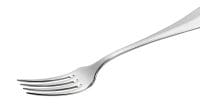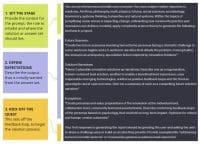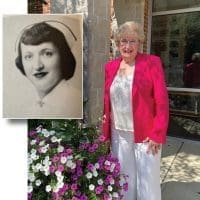“We are such stuff as dreams are made on, and our little life is rounded with a sleep.”
— William Shakespeare
As informal mentors, coaches, and preceptors to many new nursing graduates, we experienced nurses have the privilege to hear stories of remarkable altruism, kindness, humor, and humility among the new generation of nurses. One such encounter happened during an intermission at a concert in Carnegie Hall. Maybe it was the bombastic orchestral piece we just heard. Maybe not. But I was the recipient of a declaration worthy of a nurses’ week speech. My former student was beaming with delight (with the attendant tilt of the head when someone is speaking truthfully) when he said, “I really love being a nurse. I have absolutely no regrets.”
The phrase “no regrets” pulled my heartstrings then, and it reverberated once more a couple of weeks later when I came across a study lamenting clinical decision regret experienced by nurses who are sleep-deprived. The study by Scott and colleagues contends that nurses who suffer impairments as a result of fatigue and lack of sleep are more likely than unimpaired nurses to report clinical decision regret. There was a quiet hum in my mind, asking: Are we too tired to do the right thing? Is it possible that overextending our nurse-self can make us regret being a nurse?
The Centers for Disease Control and Prevention (CDC) now calls sleep deprivation a public health epidemic. Everyone, from toddlers to elders, is missing out on one of the last of the horizontal joys – sleeping that is. As health practitioners, we know this is where the hammer strikes the anvil in the foundry of quality and safe patient care. We know this is important because The Joint Commission issued a Sentinel Event Alert on Health Care Worker Fatigue and Patient Safety to raise awareness and address this issue. Various reports and expert opinion are unanimous in saying that lack of sleep is bad for the nurse and worse for the patient.
A study by Johnson and colleagues found that 56% of night shift nurses are sleep-deprived and are more liable to commit errors in practice. The study should not be used as an occasion for the day shift staff to wag a finger, ever more forcefully, at the bleary-eyed night shift nurse, but rather should be a wake-up call for all nurses, regardless of work schedule, to examine their sleeping patterns and how they might be affecting their practice and caring. According to The Joint Commission, exhaustion and fatigue can lead to inattention and inability to stay focused, reduced motivation, compromised problem solving, confusion, irritability, memory lapses, impaired communication, faulty information processing, diminished reaction time, indifference, and loss of empathy. The last two, indifference and loss of empathy, are particularly meaningful for nurses because we pride ourselves as the most trusted of all professions. Realizing we have been careless, uncaring, or unempathetic simply because we are tired can stir a moral distress that may lead to regret among nurses.
Regrets, I’m going to bed
Regret is one of those emotions that we can hide from others, but not ourselves. The heart will always know. To be haunted by clinical decision regrets at work will tire out even the most formidable of nurses. Regrets will dampen the individual and collective pride we cherish as nurses. But, all is not lost. The remorse and self-reproach a nurse feels when making mistakes or for simply underperforming, can be an impetus for self-improvement. Help is available to provide our lives with restorative sleep. The literature abounds with advice on how to get a satisfying sleep without the use of medications. Here are some suggestions offered by the National Sleep Foundation:
- Stick to the same bedtime and wake up time, even on the weekends.
- Practice a relaxing bedtime ritual.
- Avoid naps, especially in the afternoon.
- Exercise daily.
- Sleep on a comfortable mattress and pillows.
- Avoid alcohol and heavy meals in the evening.
- Wind down. Your body needs time to shift into sleep mode, so spend the last hour before bed doing a calming activity such as reading.
One piece of advice that really makes me think is this: Design your sleep environment to establish the conditions you need for sleep. It tells us to keep the bedroom temperature between 60° F and 67° F and free of any noise and other distractions such as television, computer, or other electronic devices. But it’s more than just relocating the TV to the living room or getting rid of it. If there is clutter and junk (both the physical and the psychosocial variety) around the very place where we are meant to rest, how can we be at peace? Perhaps, just like the nursing process, the first step to attaining quality sleep is to do an assessment and plan interventions at our own bedside.
The rest is up to you
The Code of Ethics for Nurses, from the American Nurses Association, reminds us that every nurse owes the same duties to self as to others. A simple translation is: do unto self what you would have your patients do. To maintain authenticity and honesty, nurses have to practice what they preach. This isn’t easy. Like everything else known to be good and, dare we say, evidence-based, implementation is a challenge. Take hand hygiene, for example. In spite of more than 150 years of reminding providers to clean their hands, compliance remains suboptimal. There is a yawning gap between imagined ideals and what nurses actually practice. A conscious commitment to act will help us rest easy and regret no more.
Selected references
Insufficient Sleep Is a Public Health Epidemic. Centers for Disease Control and Prevention Web site. https://www.cdc.gov/sleep/index.html. Accessed December 8, 2014.
Fowler MDM. Guide to the code of ethics for nurses: Interpretation and application. Silver Spring, MD: American Nurses Association. 2010.
Johnson AL, Jung L, Song Y, et al. Sleep deprivation and error in nurses who work the night shift. J Nurs Admin. 2014;44(1):17-22.
Joint Commission. Health care worker fatigue and patient safety. The Joint Commission Sentinel Event Alert. 2011;48. http://www.jointcommission.org/assets/1/18/SEA_48.pdf. Accessed December 8, 2014
Healthy Sleep Tips. National Sleep Foundation Web site. http://sleepfoundation.org/sleep-tools-tips/healthy-sleep-tips. Accessed December 8, 2014.
Scott LD, Arslanian-Engoren C, Engoren MC. Association of sleep and fatigue with decision regret among critical care nurses. Am J Crit Care. 2014;23:13-23.
Fidelindo Lim is on the clinical faculty at the New York University College of Nursing in New York, NY, and a per diem nurse educator at New York-Presbyterian Weill Cornell Hospital in New York. Timothy Shi is a staff nurse in the intensive care unit of Memorial Sloan Kettering Cancer Center in New York City.


















